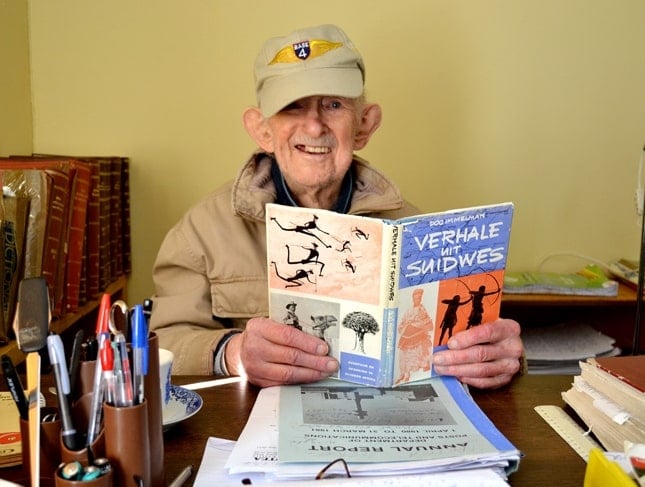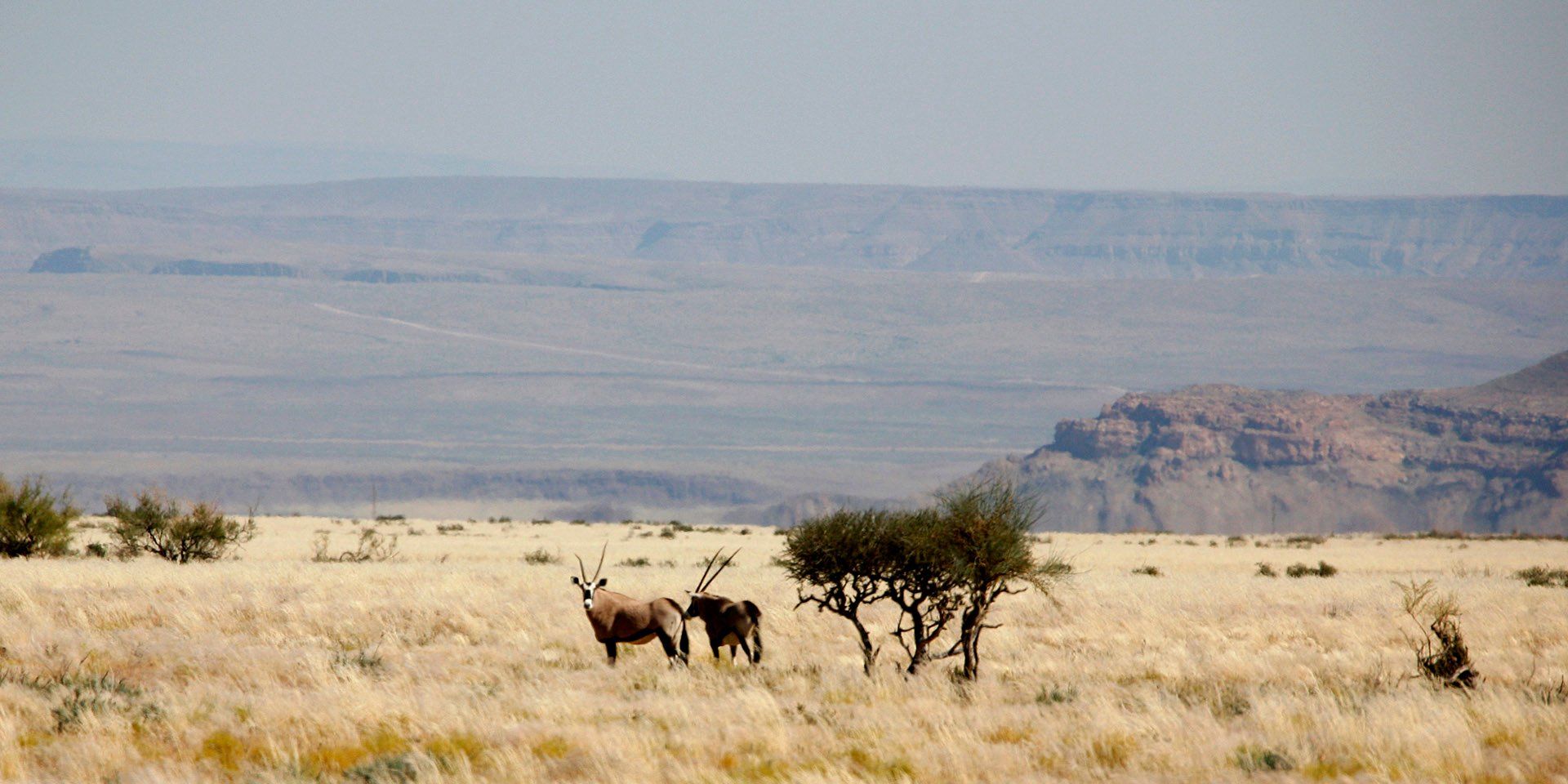With over 2000 columns and more than forty books written, Doc Immelman is a prolific and successful Namibian author.
His subject matter and titles are steeped in the land that he loves and Afrikaans-speakers countrywide have grown up with Doc’s books lining their school library shelves. With names like 'Ruacana tot Rosh Pinah', 'Wind oor die Khomas Hochland' and 'Die wit hings van die Namib', his writing is quintessentially Namibian. Boys and girls have been inspired by his books that accompanied them through high school years like good friends, capturing the mood of the time, and spurring them on their paths in later life. And Doc, at age 84, surrounded in his office by his collection of books, an old map of 'Südwest Afrika', elephant tusks, a buffalo skull and old hunting photographs, is still writing. Establishing major turning points in his life is not easily accomplished, as Doc, the true storyteller that he is, begins to tell story after story, so much so that eventually he realizes that if he continues, we’ll be there for supper and although a pot of 'gemsbok sop' (oryx soup) is simmering on the stove, there might not be enough to go around.
Peppering his account with humorous anecdotes, keeping everyone entertained with his quick wit, Doc recounts parts of his life. His story began in the Cape, where he was born as Daniel Ferdinand Immelman, only to be nicknamed Doc by colleagues later on. He attended Maitland High School and chose German as a subject, enraging his school principal for choosing the language of the enemy during wartime, and unknowingly preparing for his life in Namibia. His writing ability was realised when he was thirteen years old and a teacher encouraged him to write a poem for an Afrikaans weekly newspaper. This he did and posted it away, amazed at the end of the month to receive a letter with a post order for 7 shillings and 7 pennies. Doc didn’t realise he would be paid for the work!
After completing his schooling with a first class matric, receiving top marks in History and German, he worked as a telegraph operator in Cape Town where he specialised in Morse code. After a bout of pneumonia, he was advised by his doctor to move to drier climes and he moved to Beaufort West in the Karoo where he continued to work at the post office. A few years later, in 1950, he requested a transfer to South West Africa as a telegraph-operating clerk and radio operator in the South West African Administration, Post and Telecommunication – following his dream to travel - and easily found a replacement, swapping positions with a colleague who couldn’t speak German and was eager to return to the Cape. In 1953, Doc moved to the Tsintsabis area for a year, hunting game for a farmer, where he learnt the language of the Hai//om people. It was his experience and knowledge gleaned there that formed the basis and material of many stories and books Doc would write in his lifetime and increased his love for the natural world.
Doc’s position at the post office in Windhoek was reserved for him and he returned the following year. It was here that he met his future wife, Rya. The couple were later married, had two daughters and like many Namibians, enjoyed numerous family holidays at Henties Bay.
In 1954, Doc’s first short story 'Ses Dooie Bees langs die Grensdraad' (Six dead cattle next to the boundary fence) was printed in Huisgenoot magazine, beginning Doc’s career as a fiction writer. His first book, a compilation of short stories entitled 'Verhale uit Suidwes' (Tales from South West) was published in 1959. Although his writing career has spanned more than half a century, Doc continued to work at the post office for more than forty years until he retired in 1988. His weekly column appeared in the Republikein newspaper until 1993.
With an intense love for languages, Doc asks us, switching from language to language with lightning speed, if we can speak the various lingos and eventually gives up, disappointed that we are not conversant in the many languages he has learnt to master in his life. With a forest of pens and pencils in front of him, Doc is presently busy writing up his memoirs of a life and work that encapsulates South West.
His work was best described by Andre P Brink: "Through the years Doc Immelman built a reputation as a story teller, stories especially about South West Africa. Stories where passion and contrast are summonsed against a brute and raw contrast. Hunting stories and funny stories, mournful stories and woman stories, snake stories and scary stories, tales of love, hate, jealousy, fraud, resourcefulness, sacrifice and violence, whenever with underlying tension and mostly with a healthy and controlled sense of humour. In the domain of leisure fiction, outstanding!"






SUBMIT YOUR COMMENT